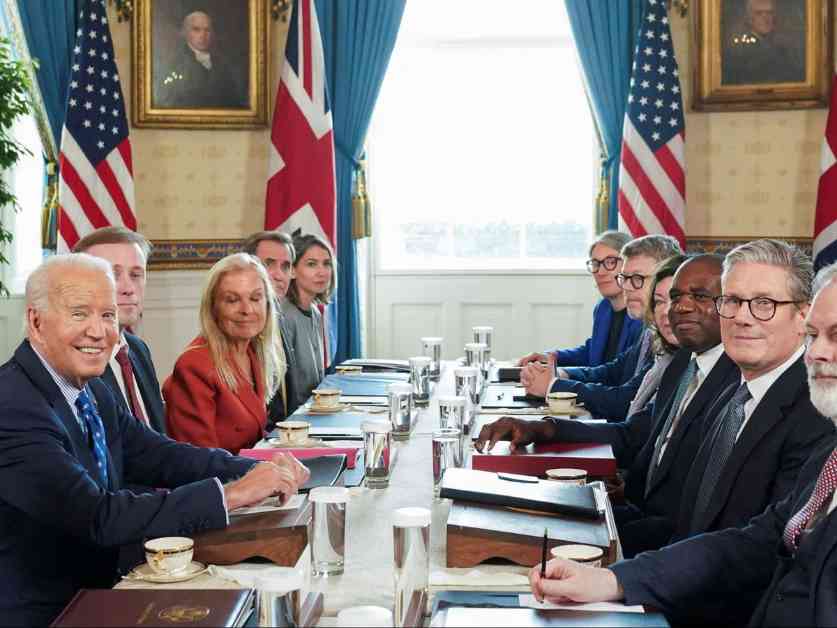Secret Nuclear Deal Raises Concerns in UK and US
A recent secret nuclear deal between Iran and Russia has sparked concerns in both the United Kingdom and the United States. The deal reportedly involves Russia providing nuclear secrets to Iran in exchange for ballistic missiles for its war in Ukraine, raising alarm about the potential acceleration of Iran’s nuclear program.
Prime Minister Keir Starmer of the UK and President Joe Biden of the US discussed their shared concerns during a summit in Washington, highlighting the growing military cooperation between Iran and Russia. Sources on the British side revealed that intelligence pointed to a deal where the Kremlin would provide nuclear technology to Iran, a troubling development as Tehran continues to advance its uranium enrichment program.
The US has accused Iran of supplying short-range ballistic missiles to Russia, which are likely to be used in the ongoing conflict in Ukraine. In response, the US, UK, France, and Germany have imposed additional sanctions on Iran, condemning its actions as escalatory. Secretary of State Antony Blinken warned about the implications of Russia sharing secret nuclear data with Iran, emphasizing the potential risks for regional stability and global security.
Denials and Diplomatic Responses
Iran has vehemently denied the allegations of supplying weapons to Russia, dismissing them as baseless and false. Meanwhile, Russia has refrained from directly addressing the reports, instead emphasizing its deepening cooperation with Iran as an important partner. The lack of clear denials from Russia has only fueled concerns about the extent of their collaboration with Iran on military and nuclear issues.
The breakdown of the 2015 nuclear deal, initiated by the US under President Donald Trump’s administration, has complicated the situation further. While the agreement aimed to curb Iran’s nuclear ambitions in exchange for sanctions relief, its collapse has left Tehran’s nuclear capabilities in question. Collaborating with experienced Russian specialists could potentially expedite Iran’s path to developing a nuclear weapon, posing a significant challenge to global non-proliferation efforts.
Pressure on the US and UK
The potential nuclear deal between Iran and Russia has placed additional pressure on the US and UK to reconsider their stance on allowing Ukraine to use long-range missiles for targeting military sites in Russia. Calls from former Conservative defense secretaries and Prime Minister Boris Johnson to relax restrictions on Ukraine’s use of Storm Shadow missiles underscore the urgency of the situation.
The use of advanced weaponry in the conflict between Russia and Ukraine has raised ethical and strategic concerns for Western powers. While the US and UK weigh their options, the prospect of Iran and Russia deepening their military ties and exchanging sensitive technologies adds a new dimension to the geopolitical landscape.
In conclusion, the secret nuclear deal between Iran and Russia represents a complex challenge for the international community. The implications of such an agreement extend beyond regional conflicts to broader issues of nuclear proliferation and strategic stability. As the US and UK navigate this delicate situation, it is imperative to prioritize transparency, accountability, and diplomatic engagement to address the growing threats posed by Iran’s nuclear ambitions and Russia’s expanding influence in the Middle East and beyond.












